Real Estate newsletter: A $50,000 electric bill
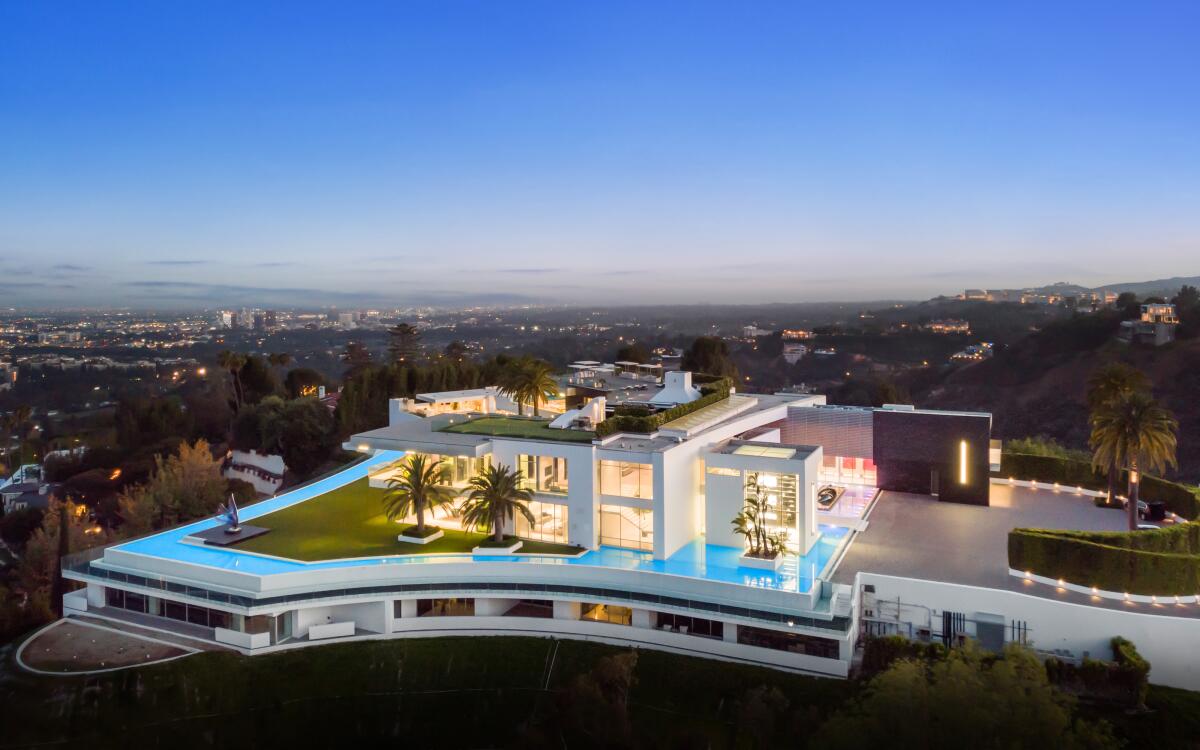
- Share via
Welcome back to the Real Estate newsletter. We spent last week figuring out why starter homes are getting smaller, so this week we spent time analyzing homes at the other end of the spectrum: mega-mansions.
Not their architecture or their owners or why some come with their own nightclubs (though that’s probably worth a story in the future) — but their electricity bills.
The idea came to us as we were sweating through another heat wave: How much does it cost to cool a mega-mansion? It seems like the recipe for a perform storm. California holds some of the largest and most luxurious homes in the country, and homeowners here pay the second-highest rate for electricity, so we assumed bills must be through the roof.
We were right. One expert broke down the massive systems required to cool down such large homes and estimated that the monthly bills would be higher than most mortgages — including one especially large home with a monthly bill of roughly $50,000.
Mansions have been top of mind for legislators as well, as a “mansion tax” is on the ballot for L.A. voters in November that would tack on an additional tax to commercial and residential sales higher than $5 million to help build affordable housing and get homeless people off the streets.
Both mayoral candidates, Rick Caruso and Rep. Karen Bass, oppose the measure but have put forth their own plans to address homelessness.
If the measure were already in place, it would hypothetically affect both of our celebrity deals this week, which include an actor’s bachelor pad and a baseball star’s ultra-modern mansion. The former belongs to Ben Affleck, who unloaded his Pacific Palisades estate for $28.5 million, one of the neighborhood’s priciest sales so far this year.
The latter belongs to longtime Philly — and short-time Dodger — Jimmy Rollins, who’s asking $11.75 million for his 11,000-square-foot spot in Encino. It’s not the only home he’s owned in the area; in 2017, he set a record when he paid $10.65 million for an even bigger home but took a slight loss when he sold it for $10.55 million two years later.
Eviction protections had a great run — two-and-a-half years and counting, to be precise — but they won’t quite make it to three. On Tuesday, the L.A. City Council decided that landlords will be able to evict tenants who’ve fallen behind on rent starting Feb. 1.
It’s a big win for landlords, and the City Council president added that, “Now is the time that we not only keep people off the streets but also protect people’s housing and preserve their financial well-being.”
While catching up on the latest, visit and like our Facebook page, where you can find real estate stories and updates throughout the week.
The staggering cost of cooling
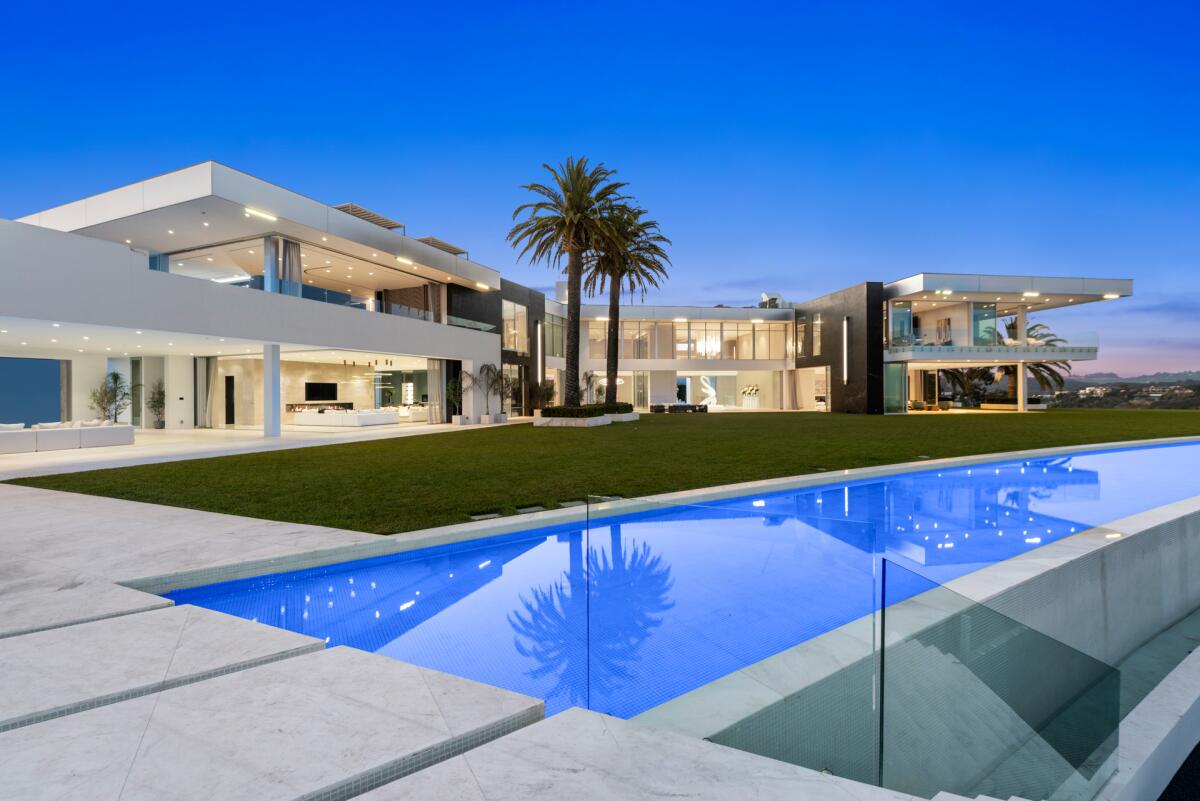
Cooling off a 1,500-square-foot bungalow in a heat wave is expensive enough. But how big are the bills for the ever-larger mega-mansions crowning our hills?
Granted, those who can afford a $50-million home likely aren’t sweating a bloated electric bill, nor perhaps the carbon footprint, but experts say the cost of keeping a mansion cool can run well north of $10,000 per month.
Take “the One,” a 105,000-square-foot home in Bel-Air that set a record this year when it sold to the highest bidder for $141 million, the most ever paid for a home at auction in America. It’s the largest modern home in the country and looks more like a spaceship than an actual place earthlings live in.
Last year, a court-appointed receiver tasked with finding a buyer for the property told The Times that the monthly electric bill was $27,000. At the time, the air conditioning only worked on one level. Lawrence Castillo, president of A/C company Brody Pennell, estimated that when the home is working at full capacity, the bill would be about $50,000.
Mansion tax will hit the ballot
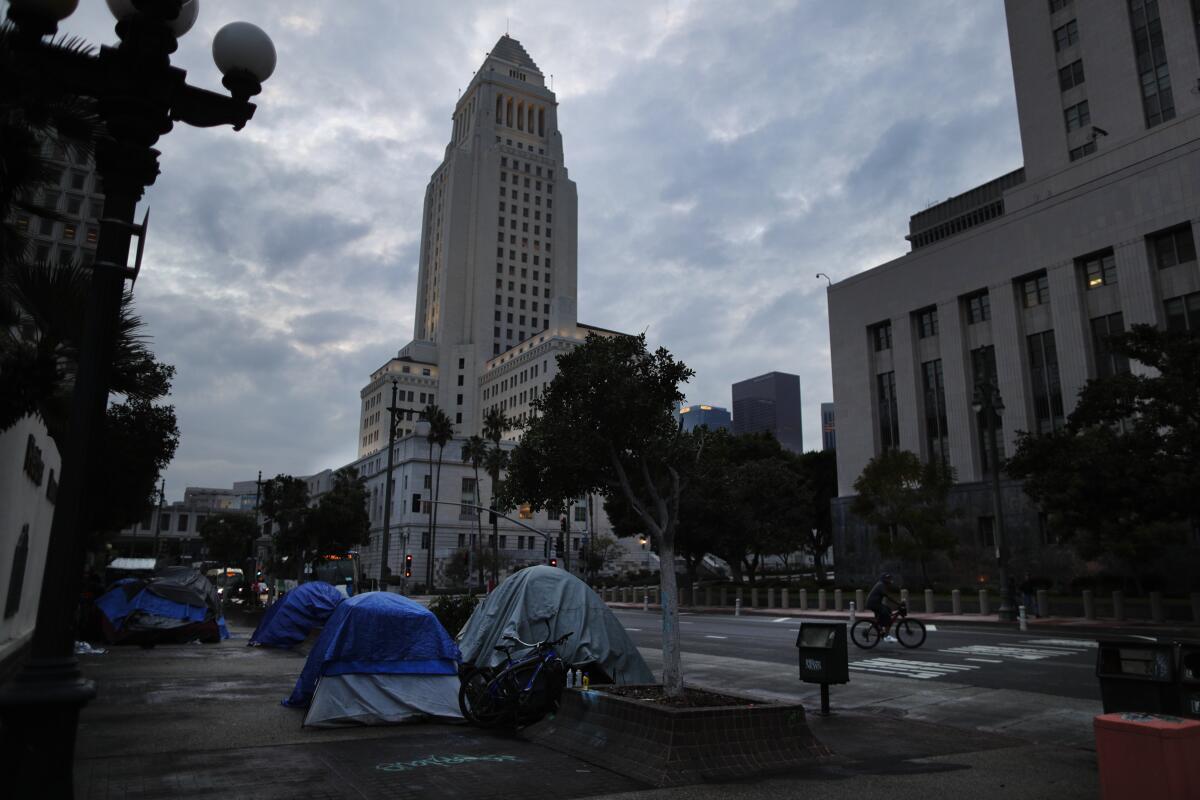
Rep. Karen Bass and Rick Caruso have each put forward expensive plans for expanding interim and permanent housing for homeless people, but the Los Angeles mayoral candidates have offered few specifics about how they would pay for them, writes Benjamin Oreskes.
One possible way to fund these plans is a ballot measure going before city voters in November. Known as Measure ULA, or United to House L.A., the “mansion tax” would impose an additional tax on commercial and residential property sales that exceed $5 million.
The ballot measure would generate an estimated $600 million to $1.1 billion a year, according to a city analysis.
Caruso’s proposed plan costs roughly $900 million, Bass’ about $300 million. But neither candidate has supported the measure, even as city officials expect funds available for affordable housing construction to plummet in the coming years.
Oscar winner closes blockbuster sale
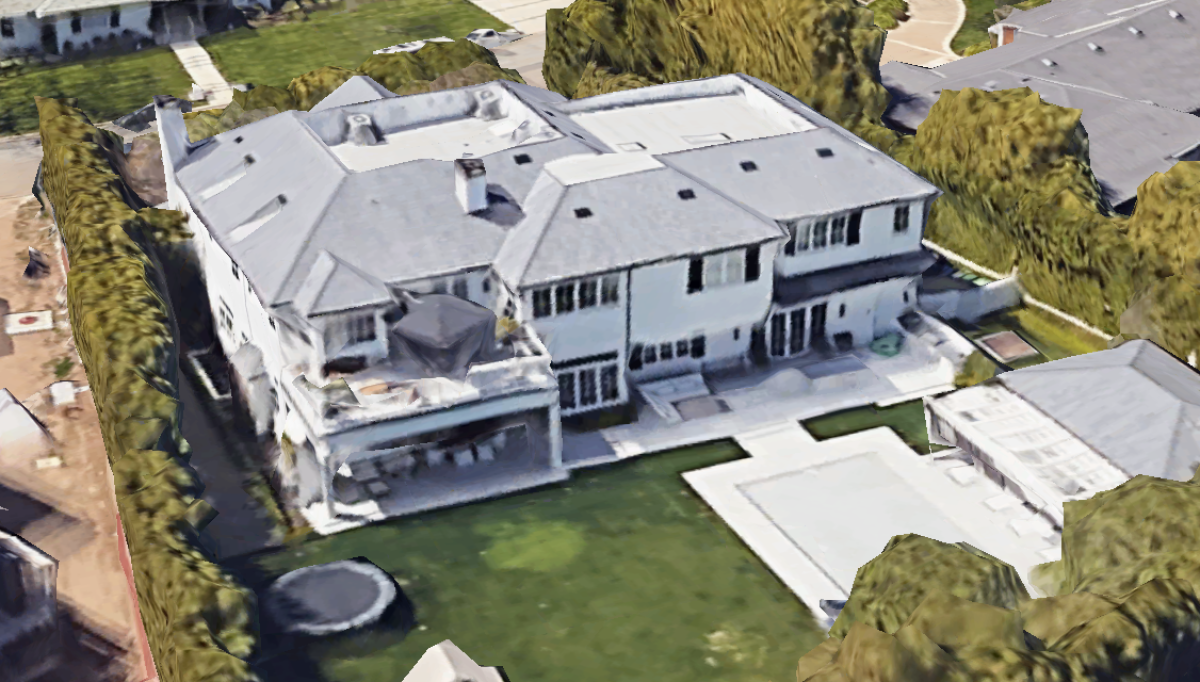
Ben Affleck’s bachelor pad is as impressive as they come. The actor just unloaded the Pacific Palisades mansion for $28.5 million — good for the third-highest sale in the neighborhood this year.
Records show Affleck bought the place for $19 million in 2018 following his divorce from Jennifer Garner. He since married Jennifer Lopez, and the pair are currently shopping for a bigger place on the Westside.
Not that this place is small; the traditional-style showplace spans more than 13,000 square feet with seven bedrooms, nine bathrooms, lavish living spaces and amenities such as a movie theater, wine cellar, full bar, gym and wellness room.
MLB star swings for the fences in Encino
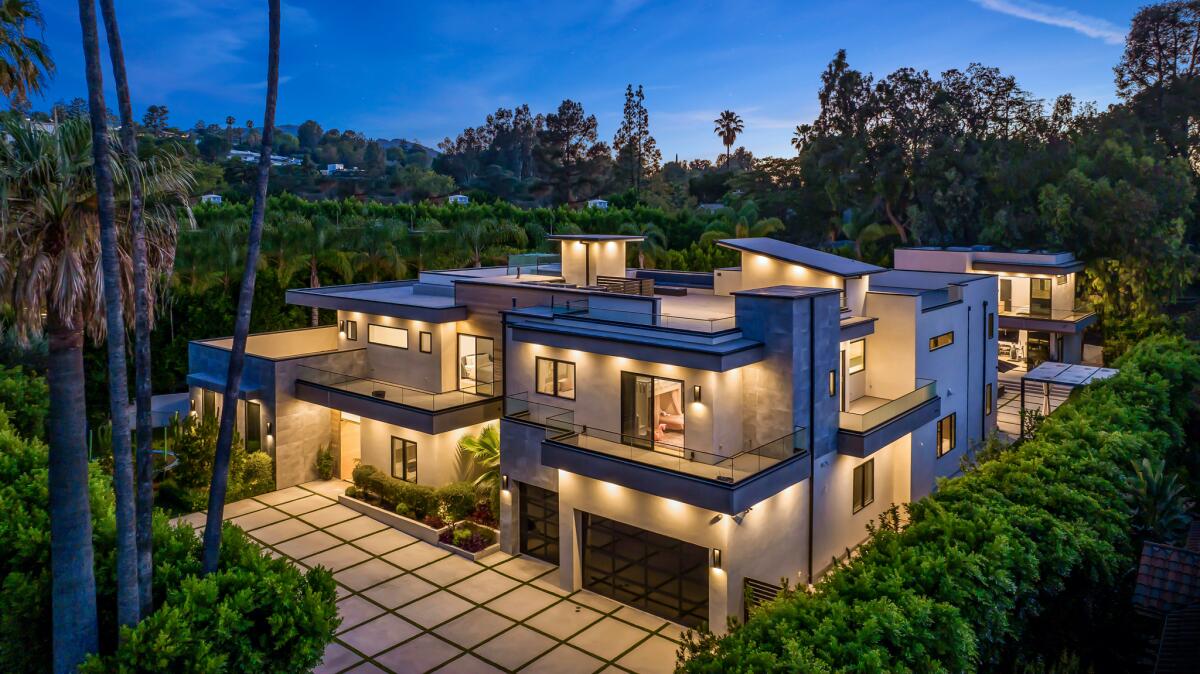
Retired baseball star Jimmy Rollins spent only one season with the Dodgers, but he’s long called L.A. home.
Four years ago, the speedster dropped $8.7 million on an ultra-modern mansion in Encino. Now, he’s shopping it around for $11.75 million.
The 11,000-square-foot stunner sits on half an acre in Royal Oaks, an affluent enclave where stars such as Kelly Clarkson and couple Joe Jonas and Sophie Turner have owned homes. Rollins’ property makes the most of its space with a main house, guesthouse, outdoor lounge and swimming pool — as well as a 3,000-square-foot rooftop deck overlooking it all.
Eviction protections are ending
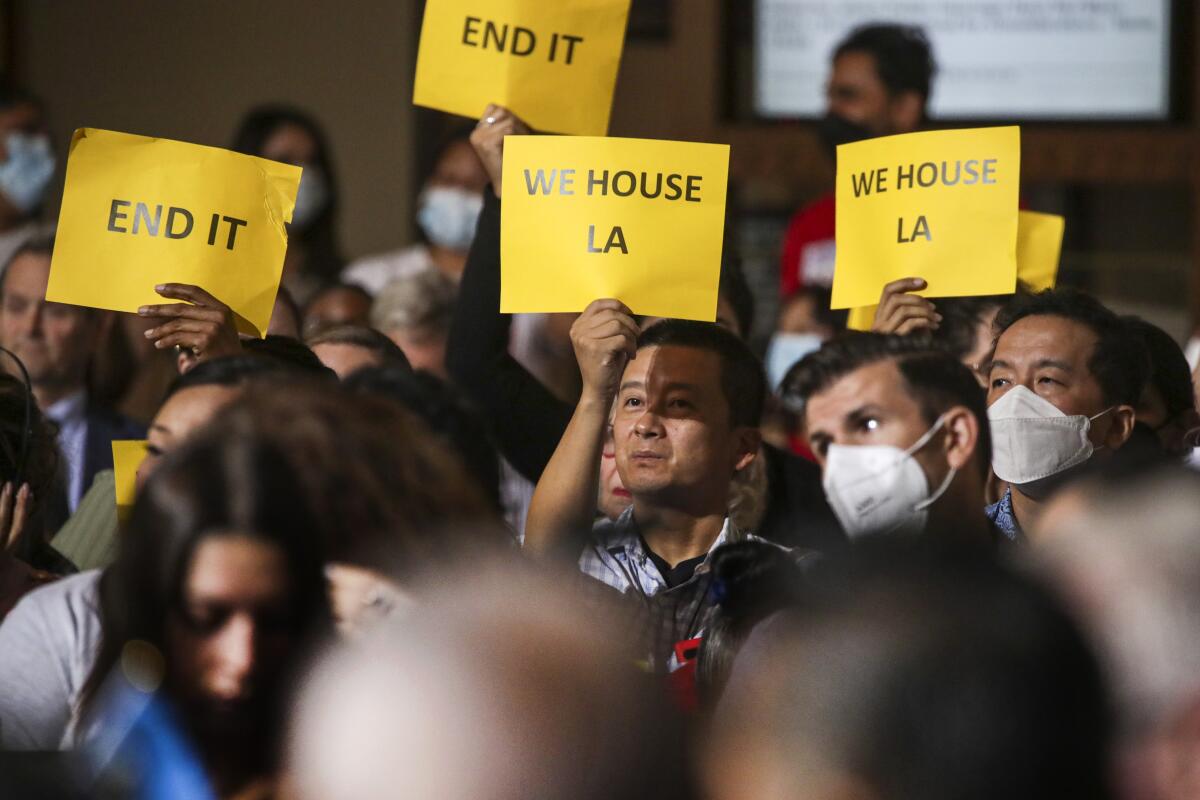
After nearly three years of COVID-19 emergency restrictions, landlords will once again be allowed to evict tenants who have fallen behind on their rent, the L.A. City Council decided Tuesday, writes Liam Dillon.
The unanimous vote allows the eviction protections, some of the longest-lasting in the country, to end starting Feb. 1.
The restrictions have prohibited landlords from evicting renters affected by COVID-19 since the beginning of the pandemic in March 2020. At the time, the fear was that the widespread economic damage caused by the virus could cause a tsunami of evictions that would send homeless rates soaring as well as further fuel COVID-19’s spread.
What we’re reading
Realtor.com released its latest market analysis this week and found an emerging trend: There are plenty of homes on the market but not many worth buying. New listings are slowing down, but homes are staying on the market longer, meaning that buyers are finding properties up for sale, but many of them are likely ones they’ve seen — and passed on — already.
Reuters checked in on the market in Baghdad, which thanks to relative stability and recovering oil prices, is booming of late. But the strong market is leading to a startling trend. Many of the city’s 2,500 historic houses are crumbling, but owners aren’t allowed to demolish them, and the government isn’t providing loans for renovations. So some people are taking matters into their own hands by burning or flooding the properties in order to sell the lucrative land.
Inside the business of entertainment
The Wide Shot brings you news, analysis and insights on everything from streaming wars to production — and what it all means for the future.
You may occasionally receive promotional content from the Los Angeles Times.




